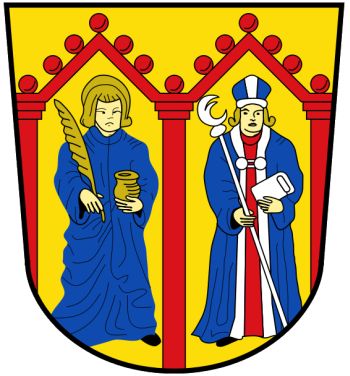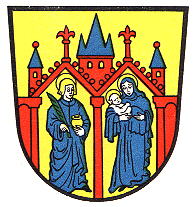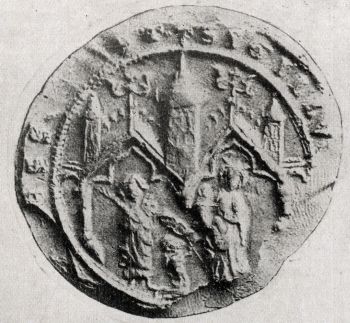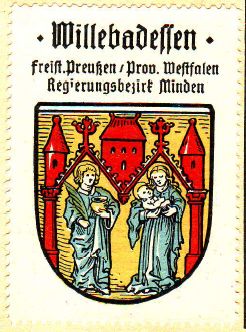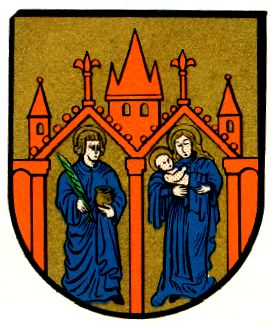Willebadessen
This page is part of the German heraldry portal Deutsche Wappensammlung |
Heraldry of the World |
|
German heraldry:
|
Selected collector's items from Germany:
|
WILLEBADESSEN
State : Nordrhein-Westfalen
District (Kreis) : Höxter (until 1974 Warburg)
Additions : 1975 Amt Peckelsheim, Altenheerse, Borlinghausen, Eissen, Engar, Fölsen, Helmern, Ikenhausen, Löwen, Niesen, Peckelsheim, Schweckhausen, Willegassen
Official blazon
Origin/meaning
The arms were officially granted on February 17, 1977.
The arms are based on the old arms (see below), but now the balls on the gate symbolise the 13 parts of the new municipality. St. Vitus remained in the arms, but St. Mary was replaced by the bishop taken from the arms of Peckelsheim.
The previous arms were granted on July 18, 1908.
The arms are based on the oldest known seal of the city, dating from 1318. The city was founded by the neighbouring convent, and the seal was based on that of the convent. The seal showed in a Gothic-style church the two local patron saints, St. Vitus (Veit) and St. Mary. On the older seals also the Bishop of Paderborn was often shown in the base between the two saints. The city historically belonged to the State of Paderborn.
| The seal from 1318 |
The arms by Hupp in the Kaffee Hag albums +/- 1925 |
| The arms as shown in 1940 |
Contact and Support
Partners:
Your logo here ?
Contact us
© since 1995, Heraldry of the World, Ralf Hartemink 
Index of the site
Literature : Stadler, K. : Deutsche Wappen - Bundesrepublik Deutschland. Angelsachsen Verlag, 1964-1971, 8 volumes; Meijer, 1940


